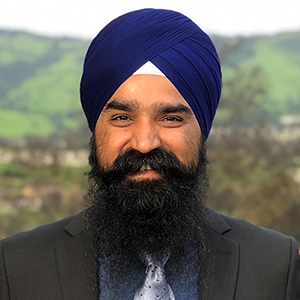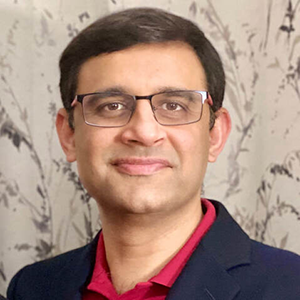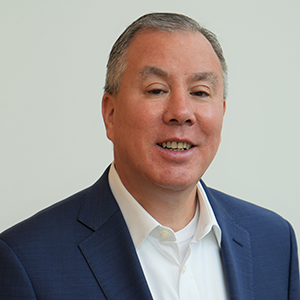 Dr. Ioana Cozmuta
Dr. Ioana Cozmuta
Dr. Ioana Cozmuta is the managing partner of Gravity Free Consulting and CEO of G-Space Inc, two small, women-owned businesses. These two portfolio companies are a reflection of Dr. Cozmuta’s driving passions: (1) to discover new revenue opportunities at the intersection of Space and Earth Technologies and to help accelerate the time to market AND (2) to develop, design and optimize advanced and new materials by liberating the potential design space from the limiting effects of gravity.
Dr. Cozmuta’s work at the confluence of Space and Earth is based on a nineteen years career in academia, at NASA and in the start-up world uniquely combining expertise in physics, computational chemistry and materials research; data science and space technology with business and entrepreneurship. From her early work in nanotechnology research to engineering projects for missions such as Hypersonics, Stardust, Mars Science Laboratory, Orion or the International Space Station, dr Cozmuta has built a legacy on transforming the status quo, opening new avenues for innovation and devoting her energy, enthusiasm and collaborative spirit to advance the new space entrepreneurial ecosystem.
Dr. Cozmuta holds a Ph.D. in Applied Physics from the University of Groningen, the Netherlands and post-doctoral specializations in computational chemistry and material design from the California Institute of Technology respectively Genomics and Biotechnology from Stanford University.
 Joseph Anderson
Joseph Anderson
Joe Anderson is the Vice President, Space Logistics for Northrop Grumman company.
In this role, Anderson is responsible for managing the technical, operational, licensing and insurance aspects of SpaceLogistics’ satellite-servicing fleet, and business development for commercial and government satellite servicing customers.
Anderson has been with SpaceLogistics nearly ten years. Previous to his current position, he served as chief engineer and director of mission extension vehicle services.
Prior to joining SpaceLogistics, Anderson spent 20 years at Intelsat where he served in a variety of technical, managerial, strategy and business development roles.
Anderson possesses more than 30 years of satellite industry experience including control system design for launch vehicles, telecommunications satellites, the Space Station Freedom, and satellite operations from more than 25 launch missions.
Anderson holds a bachelor’s degree in aerospace engineering from the University of Minnesota, a master’s in engineering from Stanford University, and an MBA from George Washington University.
 Amolak Badesha
Amolak Badesha
Amolak Badesha has been building deep-tech products and businesses for over twenty years in silicon valley. His career spans building and leading teams in R&D, Strategy / M&A, Marketing, Sales and Operations, and managing >$0.5B business. He co-founded Orbital Composites, an advanced manufacturing company, to build robotic Gigafactories for composites, on earth and in space. As a CEO, he is focused on building next-generation composite Gigafactories and developing deep customer relationships in the Space, Defense and Energy sectors. Besides Orbital, Amolak is active in deep-tech angel investing as a member of Sand Hill Angels, and advisor to Silicon Catalyst, a high-tech accelerator for silicon startups.
 Rudranarayan Mukherjee
Rudranarayan Mukherjee
Dr. Mukherjee leads this SpaceSMART think tank. Currently, he is a Robotics Technologist at NASA’s Jet Propulsion Laboratory where he has led various robotics projects for NASA, DARPA, and other DoD and civil entities as Principal Investigator. These include Curiosity rover mobility on Mars, Mars sample return, Lunar robotic sampling and sample return, telescope assembly for astrophysics, in-space robotic servicing of geosynchronous satellites (RSGS), and robotic persistent platforms for Earth science/remote sensing. His leadership experience includes the NASA-DoD On-orbit Servicing Assembly and Manufacturing National Initiative (OSAM NI), NASA’s Strategic Capability Leadership Team for Rendezvous and Capture, topic area management for Strategic Technology Transfer and Research grants, and roles in JPL’s Office of Strategic Planning and JPL’s Chief Technologist’s Office for Astrophysics. When he is not advancing space technology, you can find him seeking inspiration from uncommon beauty in common places.
 John Rood
John Rood
|
Mr. Rood is the Chairman of the Board, President, and CEO of Momentus (NASDAQ: MNTS), a space company offering infrastructure and transportation services. Since joining the company in August 2021, he has overseen the transition of the company to a public company listed on the NASDAQ exchange, production and launch of the company’s first orbital transfer vehicle, and placement of eight customer satellites in orbit. He currently serves on the Board of Directors of Hitachi Vantara Federal, which provides IT services to U.S. Government customers, and formerly served as Chairman of the Board and Security Director of Radisson Hospitality Inc. Mr. Rood has held executive positions at two of the world’s largest aerospace and defense companies, Lockheed Martin and Raytheon. From March 2016 to January 2018, he was Senior Vice President of Lockheed Martin International charged with leading business growth and industrial partnerships in more than 70 countries. He also served as Vice President for Corporate Domestic Business Development at Lockheed Martin. Prior to joining Lockheed Martin, Mr. Rood was Vice President for U.S. Business Development at Raytheon from 2009 to 2014. Public Sector Experience Mr. Rood has a broad range of government experience, having served as a senior official at the Defense Department, State Department, White House/National Security Council, Central Intelligence Agency (CIA), and in Congress as a staffer in the U.S. Senate. From January 2018 to February 2020, Mr. Rood served as Under Secretary of Defense for Policy where he led formulation and coordination of national security policy within the Department of Defense as the principal advisor to the Secretary of Defense for such matters. He managed a team of over 2,100 civilians and military service members and was responsible for building partnerships and defense cooperation with U.S. allies, including overseeing the $55B foreign military sales program and export controls. Mr. Rood managed implementation of strategies, including the National Defense Strategy, resulting in a new focus on addressing the implications of growing competition with the world’s great powers China and Russia. He oversaw development of a new cyber strategy and authorities; a space strategy for the newly- established Space Force; completion of the Missile Defense Review; Nuclear Posture Review; and a counter-terrorism strategy for the defeat of ISIS. From 2007 to 2009, Mr. Rood served at the State Department as Acting Under Secretary for Arms Control and International Security. He also served as Assistant Secretary of State for International Security and Nonproliferation. In two tours at the White House/National Security Council from 2005 to 2006 and 2001 to 2003, he served under President George W. Bush as Special Assistant to the President and Senior Director for Counter- proliferation Strategy, and Director for Proliferation Strategy, Counterproliferation, and Homeland Defense. He played a key role in the President’s decision to deploy missile defenses to protect the United States and to withdraw from the 1972 ABM Treaty. From 2003 to 2005, Rood served as Deputy Assistant Secretary of Defense for Forces Policy, where he was responsible for the development and oversight of policy and programs related to U.S. nuclear and conventional strategic forces, missile defenses, and space. Earlier in his career, Mr. Rood worked as Senior Policy Advisor to Senator Jon Kyl of Arizona and as a Fellow for Senator Thad Cochran of Mississippi on the Senate Governmental Affairs Subcommittee on International Security. From 1988 to 1999, Rood served in a variety of positions as an analyst at the CIA, including following missile programs in foreign countries. Mr. Rood holds a Bachelor of Science degree in Economics from Arizona State University. |
 Seamus Tuohy
Seamus Tuohy
Seamus Tuohy, PhD is the Senior Director for Business Development for Robotics and Space Operations (RSO) at MDA, Canada’s leading space company that has provided robotic technology and operational support for space missions including Space Shuttle, International Space Station (ISS), and now Gateway in lunar orbit.
In this role, Seamus has responsibility for providing solutions for commercial, civil and National security missions including strategy and business development of on-orbit robotics, sensors, and rover technologies for the United States space market.
Prior to his current position, Seamus led business development and strategy for the Aerospace, Defense and Civil operation at Dynetics, a Leidos corporation. Seamus played a key role in the development and production of low-velocity strike systems, civil and commercial space systems, hypersonic systems, and cyber and IT systems. Before that position, Seamus was the space program office lead for the Charles Stark Draper Laboratory responsible for strategy, business development and delivery of hardware and software products for the space market.
A recognized expert in space rendezvous, proximity operations, and docking, planetary entry, descent and landing, and space robotics, Seamus was a key contributor on such foundational programs as DARPA Orbital Express, USAF XSS-11, Space Shuttle, ISS, Cygnus, Dreamchaser, Orion, Space Launch System, and NASA’s Human Lander System. In addition, Seamus contributed to a broad range of science missions including LADEE, CYGNSS, OSIRIS-Rex, and the Parker Solar Probe.
Seamus holds a doctoral degree in Ocean Engineering from the Massachusetts Institute of Technology (MIT) and a Masters of Engineering Management from the Gordon Institute at Tufts University. In addition, Seamus was awarded Masters degrees in Ocean Engineering and Mechanical Engineering from MIT and a Masters and Bachelors degree in Naval Architecture and Marine Engineering from the University of New Orleans.